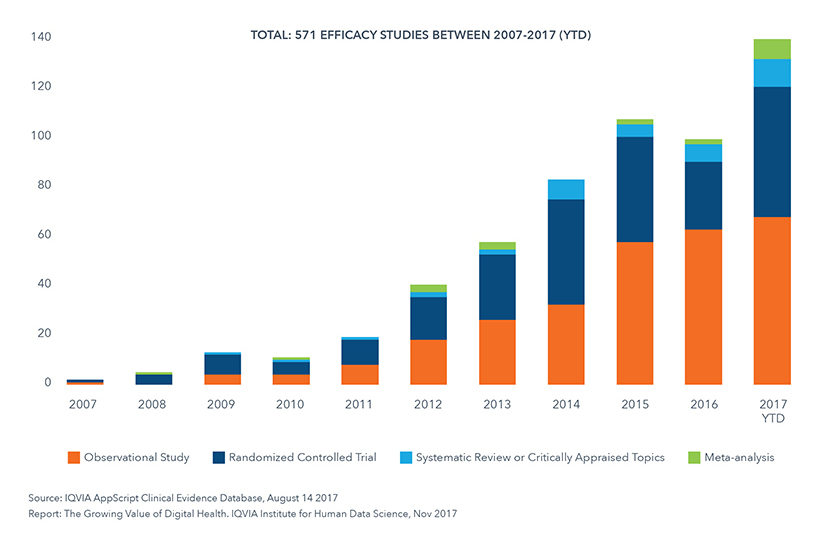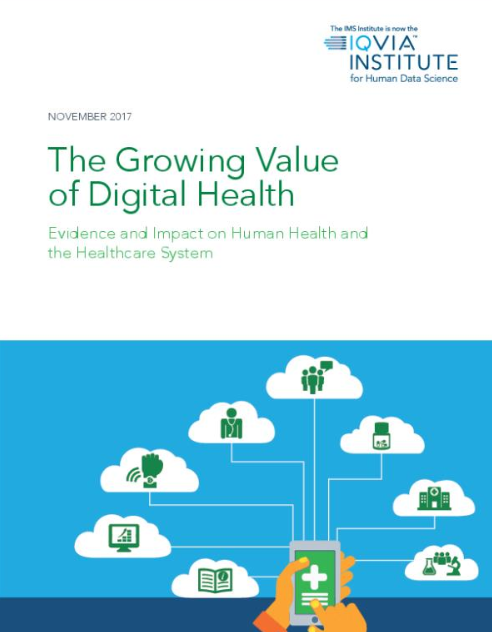Just giving a patient a wearable, or a smartphone, or any number of apps or devices from blood pressure cuffs, to VR avatars, does not mean that they will be effective in impacting a particular disease condition (prevention, diagnosing, monitoring, to therapeutic impact).
Evidence for Digital Health Related Technologies and Platforms
This page seeks to summarize some of the published, peer-reviewed evidence related to Digital Health. Much of this work is being published across the medical literature. New entities are seeking to make the acquisition and sharing of clinical evidence more efficient and streamlined, as epitomized by several academic programs and entities like Node Health.


Evidence and Impact on Human Health and the Healthcare System (IQVIA Report)
A report by IQVIA Institute for Human Data Science. The proliferation of Digital Health tools, including mobile health apps and wearable sensors, holds great promise for improving human health. Over 318,000 health apps are now available on top app stores worldwide with more than 200 health apps being added each day. This report on Digital Health examines trends in three areas — innovation, evidence and adoption — to assess whether these new tools are positioned to have a fundamental impact on patient care. As Digital Health brings new approaches to the management of health conditions this report explores the growing body of evidence that demonstrates their impact on human health and extrapolates the potential cost savings to the U.S. healthcare system.
 My Rx Pad
My Rx Pad